Skunk Anansie's Ace: my top 6 tips for guitarists
Plus the ACM tutor talks Skunk's 2017 tour
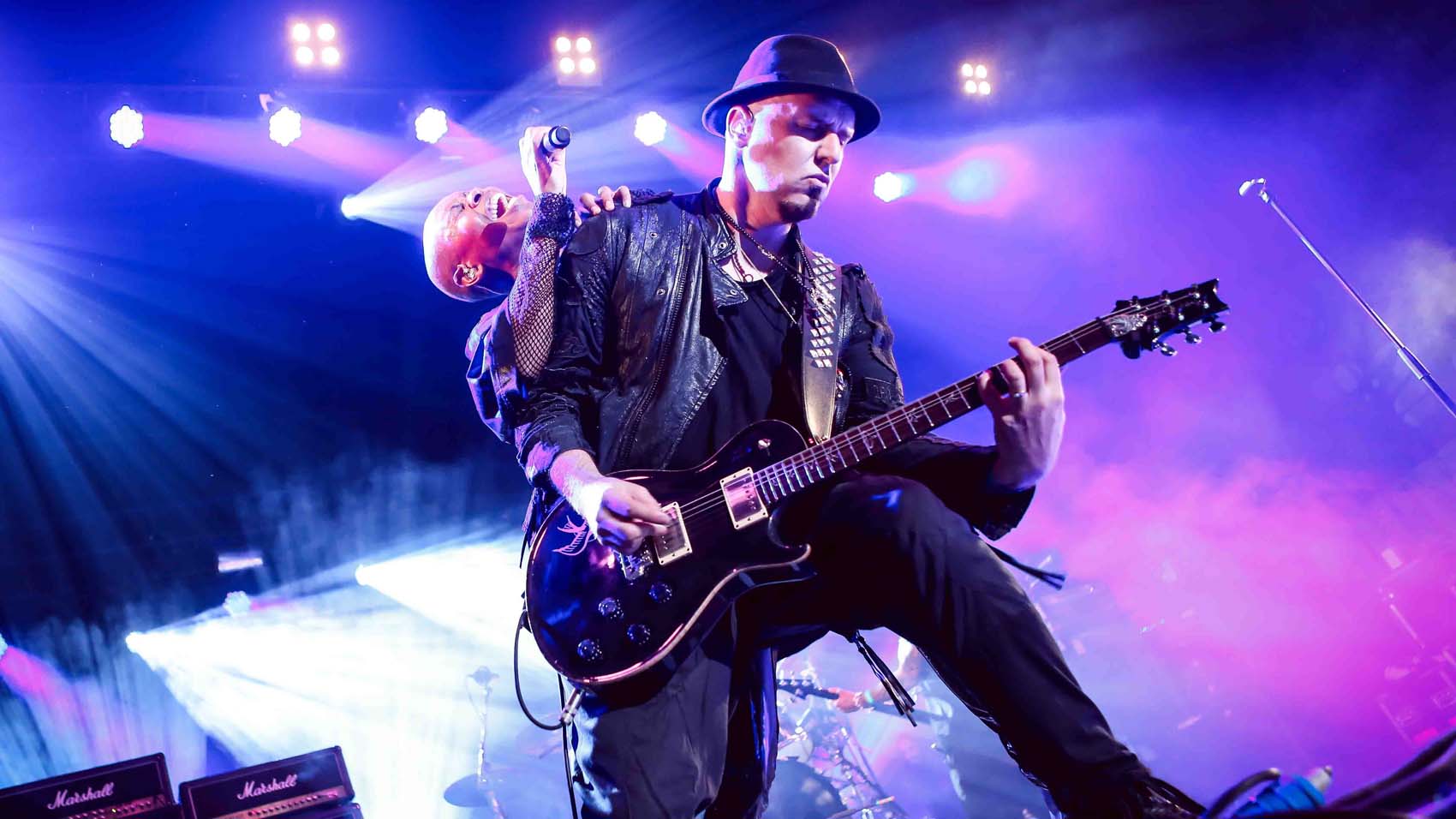
Introduction
It’s now 22 years since Brit-rockers Skunk Anansie first got together, and 21 years since the release of their scorching debut platter Paranoid & Sunburnt, which set the band on the path to becoming one of the UK’s top alternative rock acts of the 1990s and beyond.
With a total of over six million records sold, Skunk Anansie are still a searing force to be reckoned with. 2016 has so far seen the release of the four-piece’s sixth long player Anarchytecture as well as a hectic summer festival season of shows, while a major Jan/Feb 2017 tour of Europe is currently being prepped.
Skunk’s co-founder and guitarist Ace is also a highly respected tutor, presiding over his own guitar school The Ace Guitar Academy.
More recently, Ace has been enjoying a senior role at the prestigious Academy Of Contemporary Music (ACM), which has campuses in both Guildford and London.
That makes Ace particularly well qualified to deliver some sound advice for guitarists, but before we crack on with his top tips, he sheds a little light on his role and responsibilities at ACM.
“My official title is Head of Creative Industry Development, which is a grand title, but it really means I’m the outside link into a lot of the actual real world of the music industry,” Ace explains.
“I’m dealing with other artists for masterclasses and appearances, record labels for auditions or when they’re scouting for talent, industry companies for internships and business placements, and loads of other things like that.
“Then, I also put on events, gigs, shows, bootcamps and workshops and all those kinds of things for students to play in. There’s also a lot of real-life stuff, like helping students to actually go out and work on shows and be part of sessions with a main band. We introduce the students to anything in the music business where people can supposedly make money.
We’ve got so many good alumni like The 1975 and The Shires who’ve come through the college
“The department is called Industry Link, and there are 100-150 events every term here, so it’s really busy. It’s amazing, because we’ve got so many good alumni like The 1975 and The Shires who’ve come through the college and come through Industry Link as well because it set them up with the right people and gave them the right places to go. Two guys got industry jobs last week from doing one of our courses.
“We’re the outreach, the real life extra-curricular experience for the students. The vibe of this place is just really energising. I absolutely love it. It’s really good because when you’re in a band all the time, it’s amazing because you can live out your rock and roll fantasy - like I do with Skunk - but at the same time you are in the music business where there’s a lot of negative people and there’s a lot of pressure and there’s money involved.
“You come out here and there’s just pure creativity and hope. I can go out and get my rocks off but then come back and be energised by spontaneity and progressive thinking.”
Skunk Anansie are once again hitting the road for a major trek across Europe in early 2017, and audiences can expect something a little different from the upcoming shows…
“We’re actually going to shake things up a bit,” enthuses Ace.
We’re going to be pulling out loads of old songs that we haven’t played for years
“What we’re going to do is radically change the look of the show with new lighting and rigging, and we’ve now brought in video content, which we had at the festivals.
“Then, we’re going to be pulling out loads of old songs that we haven’t played for years including some obscure stuff because people go to us, ‘Why don’t you play this? Why don’t you play that?’ A lot of people want to hear those lesser-known songs as well.
“It’s just been 21 years since the first album [Paranoid & Sunburnt, 1995] was released, and people are still harking back to that and always want to hear songs off it. So, when we go on the next tour, we’re thinking, ‘Why not?’ so we’re going to pick some of those songs that we really like that people have been asking for and that we haven’t played for years.”
Skunk Anansie play London’s Brixton Academy on 4 February 2017.
Don't Miss

1. Really good tone is important
“If you haven’t got a good sound, it doesn’t matter how well you play - it’s going to turn people off! Really good tone means the guitar into the amp. Forget about all the pedals and all that stuff first of all. Just get a good sound through the guitar and the amp and that means you can play one chord and you can be a rock god, ie Foreigner, Juke Box Hero!
“When I was a kid, I walked into a shop and I heard that and it changed my life. Literally, I’d just picked up a guitar at that point - or maybe I hadn’t even picked up a guitar yet! - but I walked into this record store, was sifting through stuff like Iron Maiden or something and this guy started playing Juke Box Hero bollocking-ly loud on vinyl with just those two chords! I was like, ‘Oh my god, what is this? This is so amazing.’ And he was like, ‘This is 4 by Foreigner.’
“The simplicity of that song’s amazing. It was a big hit, but it was all about getting that one good guitar chord sound. I think tone is essential, because you don’t have to be a good player to play a barre chord. If you’ve got really good tone and you can play a barre chord, you literally can write a song out of three chords and knock people over with it.
“If we think of any classic amazing player from Jimi Hendrix to Tony Iommi of Black Sabbath to Jimmy Page… Whole Lotta Love is probably the easiest riff ever, and so is N.I.B., but they’re all about tone! Plug in, put your lead into the amp and make it sound good.”
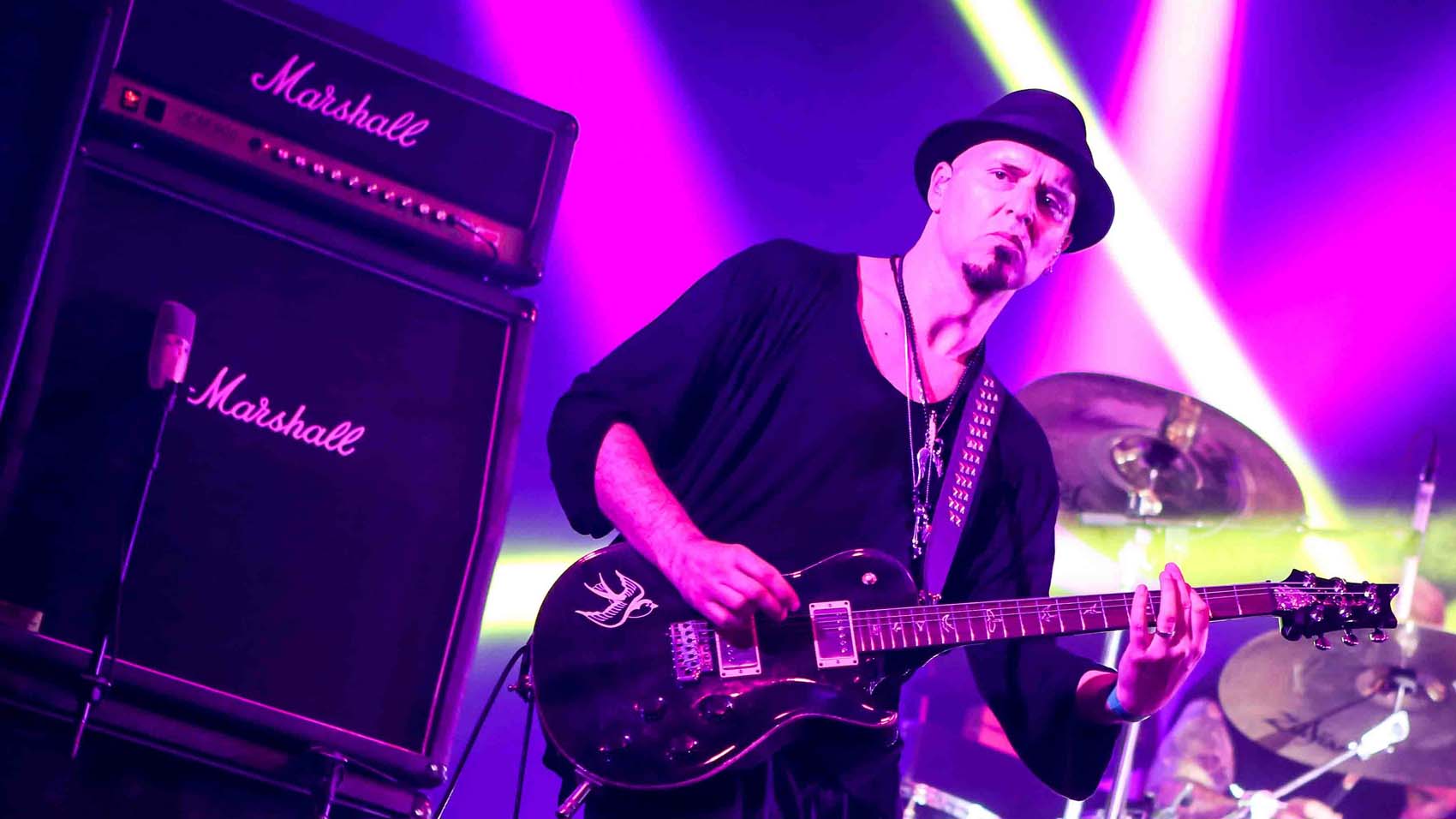
2. Experiment with sound
“My second tip would be experiment with sound. Some people say, ‘I’m a purist. I don’t use pedals. It’s all about technique’, which is fantastic for them, but personally, I think it’s really good to experiment with sound, because sometimes it can get a little bit boring if it’s just the same sound.
If you’re not very experienced, you can still be successful and really good if you experiment with sound
“Even if your textbook technique’s brilliant, it’s nice to add a bit of colour. For instance, if we were to go to the extreme with guys like Korn and The Edge - they play one note and it sounds fantastic! If you’re not a great player, if you’re not very experienced, you can still be successful and really good if you experiment with sound. You can play one note and it’ll sound amazing.
“And also, if you do experiment with sound, it makes you play a certain way. Sometimes, it can make you play simpler, and simple is really good. You need to go out there, try different things and see what suits you. And, even if you’re not using pedals, experiment with the sound of amps and guitars, because that’ll help you create your unique sound.
“It’s like your voice. If someone rang you up on the phone, they would know it’s your voice and you want that with a record. When someone hears a guitar, they can go, ‘That is Stevie Ray Vaughan!’ Sound can come from your fingers, and a lot of it does, but I would say definitely get into looking at effects and get a unique tone.”

3. Don't force it
“If you want to develop your own style, it kind of comes naturally. If you’re sitting and you’re playing and playing and playing and working hard on your technique and going over scales, it can become a bit desperate, and it can come across that way. People can recognise that, and they can see that you’ve just been intensely practising.
“I’ve always found that if you relax and you just play what you want to play, you naturally get into your groove. It’s there. It’s in you. Everyone has their own natural groove.
“I’ve found that I’ve never forced myself to do anything. It kind of comes and I’ve kind of gone with it, so my style of playing is being relaxed, and I suppose that’s where my unique playing style, originality and sound come from. For me, personally, I say, ‘Don’t sweat it. Don’t force it. It will come!’”
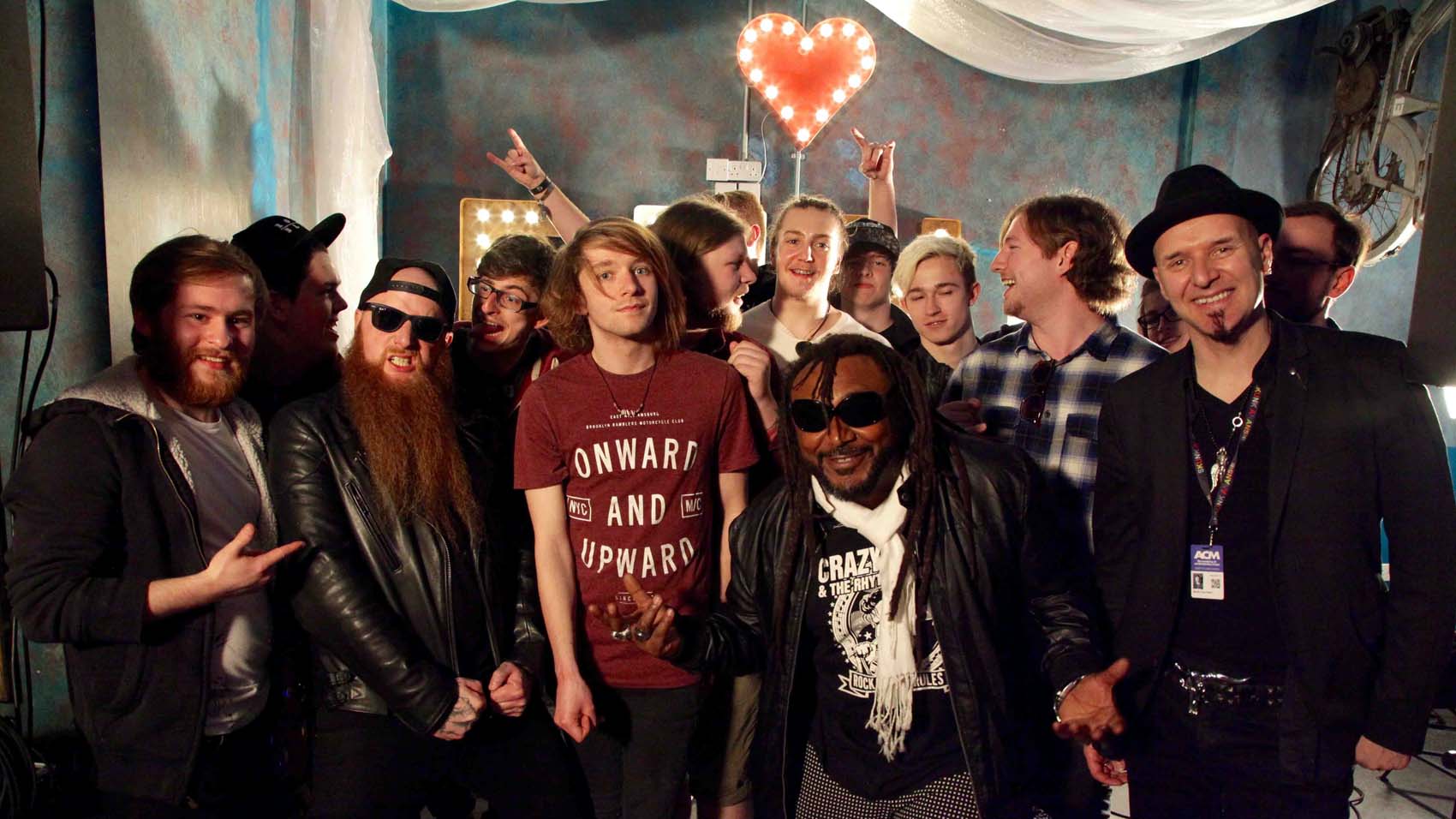
4. Get on with people
“This is a totally unmusical tip, but it’s a really good one – get on with people! If you get on with people and you socialise and you network and you play and you go to gigs and you go to band nights and all of that, all of your opportunities will come to you as a guitar player.
If I’d never been a sociable person, never gone down to the pub and gone to shows, I just wouldn’t be where I am today, full stop
“If I’d never been a sociable person, never gone down to the pub and gone to shows, I just wouldn’t be where I am today, full stop. A lot of the breaks you get are from friends and getting on with people. That’s where all the big breaks come from, even joining a big band and getting called up for the audition. That will come because you got on with somebody and they said, ‘He’s a good player… and he’s good to get on with.’
“The way Skunk formed is a good example of this. I was running a club in London with some guys, and we got on with everyone. We booked Oasis and all sorts of bands, and Skin [lead vocalist, Skunk Anansie] used to come into the club and her band used to play, and I just got on with everybody because I used to stage manage and run the place and I knew all the managers and the agents and everyone. I just used to be a sociable person and I used to let everyone in free.
“Then, one day Skin came in and we were chatting and I said, ‘Look what I’ve got!’ and she goes, ‘What?’ I said, ‘It’s a white label by this American band.’ She goes, ‘What are they called?’ and I go ‘Rage Against The Machine’. I put it on and it was Killing In The Name. I reckon I must have been one of the first people to ever get that record. No-one had it.
“I put it on and we both went, ‘What the fuck is this?’ She was like, ‘Wow, this is really fucking off the hook!’ I said to her, ‘I’m into loads of really cool underground American bands – have you heard of Tool?’, and she’d never heard of them, so I made her a cassette of lots of these bands. From that, we made friends and that’s how Skunk Anansie was born and it came from just being sociable.
“One funny thing was I played with Tool one day, and the bass player comes up to me and goes, ‘All right, mate! Do you remember me? You used to let me into your clubs free all the time. We used to play gigs with you.’ It turns out he was in a band that used to play there… so getting along with people is really important!”
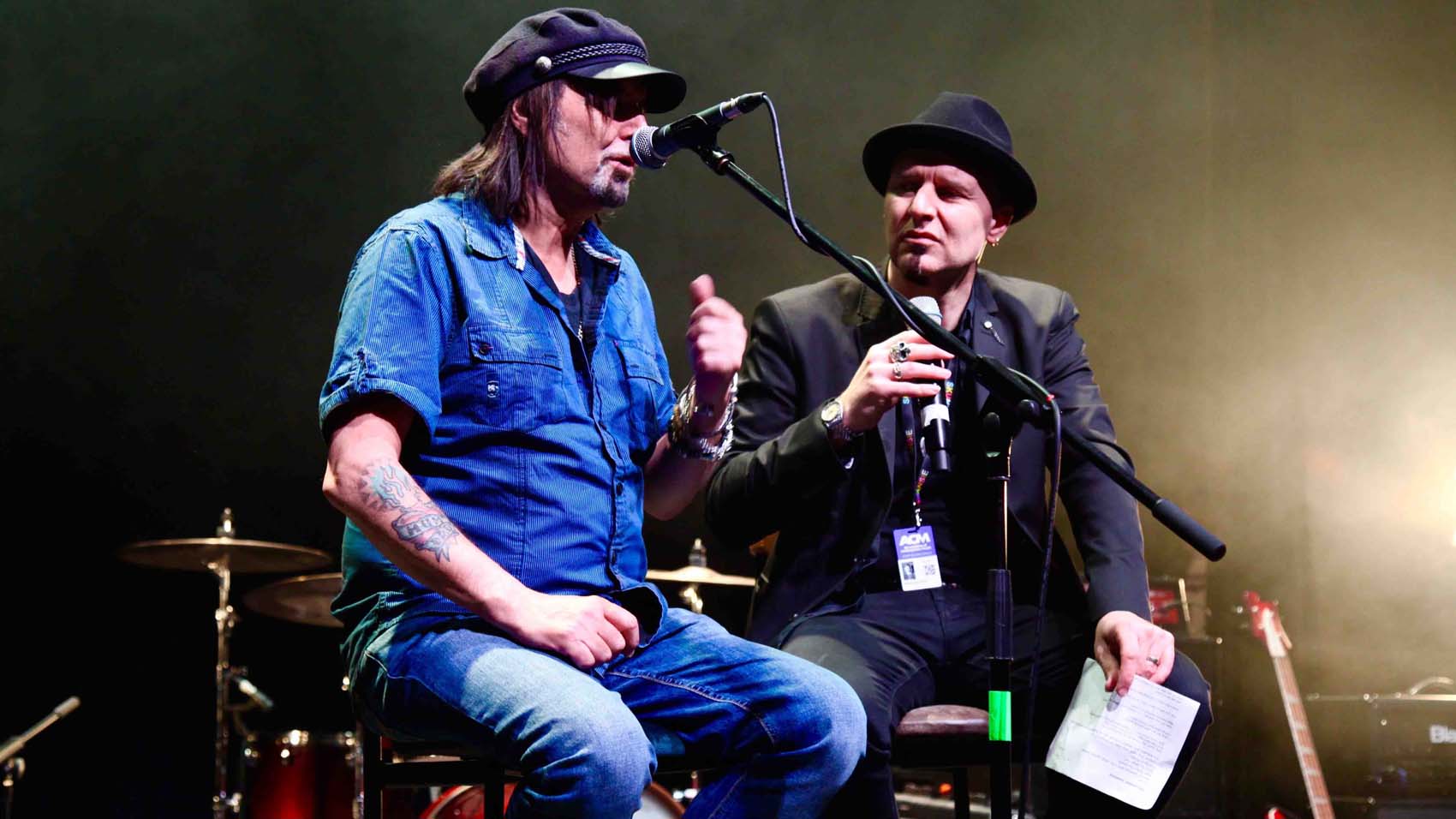
5. Learn from the greats
“It’s all out there. You know when people say, ‘How do I do this? How do I do that?’ I always say to them, ‘Well, music is not really rocket science. It’s already out there for you!’
“If you want to make a great record, listen to some really great records. There’s your way to do it. If you want to learn how to play guitar and have a feel and a sound, then a lot of the time it will actually come from watching DVDs, listening to records and going, ‘Ah that’s what they’re doing - I’ll copy that!’ You’ll try to copy it and you’ll create your own style because you’ll never get it exactly right.
Everything you need to know about playing guitar has happened already and it’s all been documented
“Everything you need to know about playing guitar has happened already and it’s all been documented and it’s all been done by great people. I’ve never had a guitar lesson in my life. All I did was listen to records and play to them.
“There were three main bands that I learnt my guitar playing from. It was Black Sabbath, Motörhead and AC/DC. I listened to them and that’s where I got all my technique from. I got all my riffing technique and laid-back stuff from Sabbath. AC/DC gave me simplicity in chords and making them sound good live, plus tremolo in the fingers from Angus.
“What Motörhead gave me was the power of songwriting, the power of the three-piece and the three-and-a-half minute ‘grab you’ songs with the aggression of sound.”
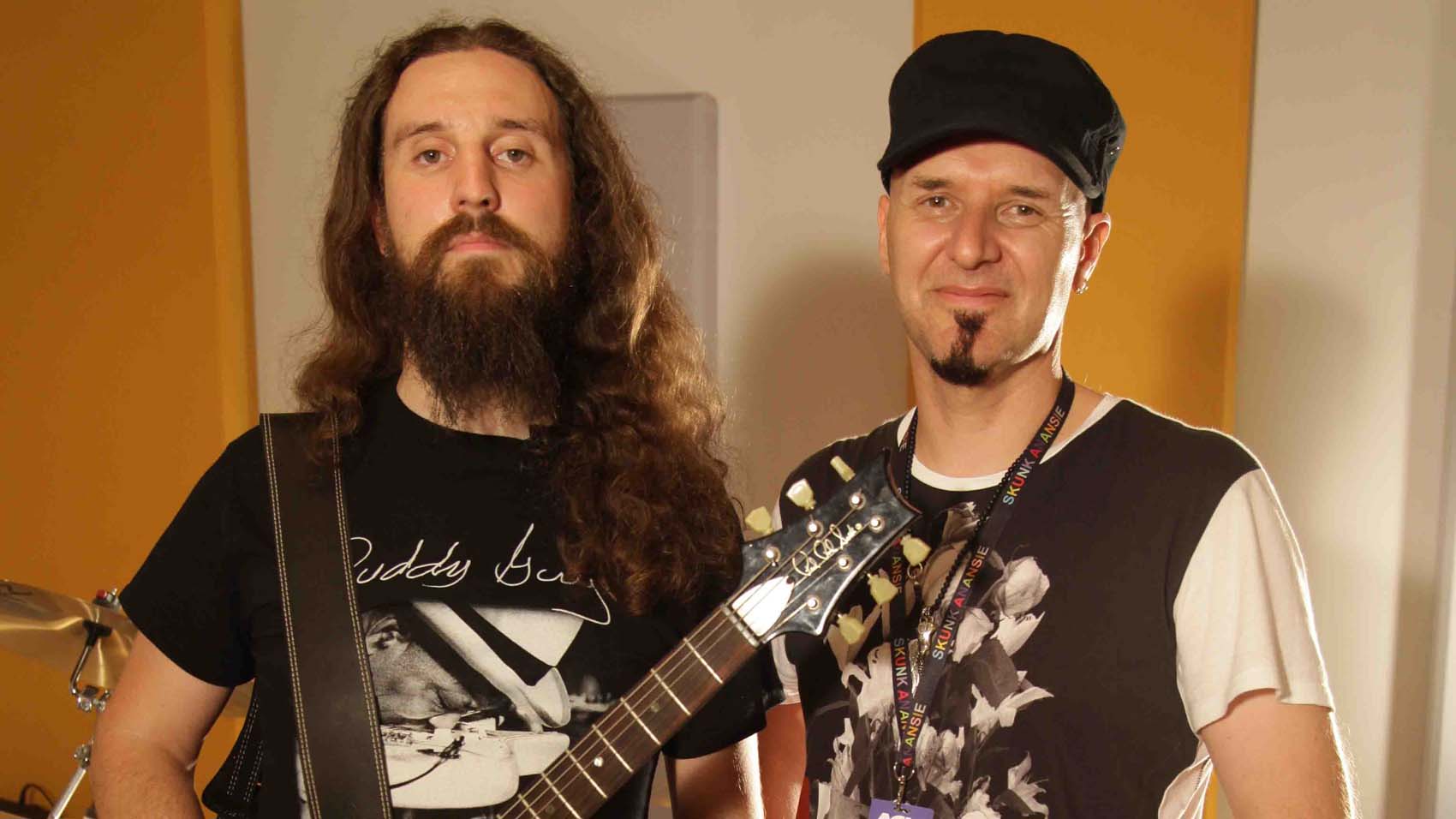
6. Really want it
“If you want to be successful, you have to really want it. I meet people every day who kind of want to be successful but they don’t really want it. They go, ‘Yeah, I want to be really successful’ and then I say, ‘What are you doing about it?’ And they’ll say, ‘Well, I don’t want to do that. I don’t want to do this. I don’t want to get out of bed early.’
“If that’s the case, it ain’t going to happen for you! You’ve got to really want it, and the people who do really want it usually get there. You just have to be really focused and really driven and just go for it.”